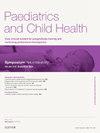Developing leadership skills in paediatric training
Q3 Medicine
引用次数: 0
Abstract
Doctors are often required to demonstrate leadership skills in a wide variety of environments. Despite this, throughout medical school and in postgraduate training, opportunities to foster such skills are limited. This is especially true in consultant-led specialties such as paediatrics. We aim to highlight ways to improve these skills through non-clinical and clinical examples. Good leadership requires a range of styles, skills, and abilities, and the wherewithal to change and adapt as necessary. There are a variety of leadership styles – from commanding to democratic – that paediatric trainees will be required to develop during training, as well as the emotional intelligence to change as the situation requires. Focusing down to clinical and non-clinical examples, paediatric trainees will be faced with events such as cardiac arrests, complaints and errors, audits, and teaching. These events provide opportunities to develop the ability to lead with care, develop others, evaluate the service, make changes, and inspire others. These are cornerstones of medical leadership, and opportunities to develop them must be taken. In summary, paediatric trainees can maximize opportunities to develop a wide range of leadership skills and styles throughout training, in both clinical and non-clinical roles. These skills can be developed at any stage of training and will be applicable throughout training and beyond.
发展儿科培训的领导技能
医生经常被要求在各种各样的环境中展示领导技能。尽管如此,在整个医学院和研究生培训中,培养这些技能的机会是有限的。在儿科等由顾问主导的专业中尤其如此。我们的目标是通过非临床和临床实例来强调提高这些技能的方法。良好的领导需要一系列的风格、技巧和能力,以及必要时改变和适应的必要资金。有各种各样的领导风格-从命令到民主-儿科实习生将被要求在培训期间发展,以及根据情况需要改变的情商。专注于临床和非临床实例,儿科学员将面临诸如心脏骤停、投诉和错误、审计和教学等事件。这些活动提供了机会来发展细心领导的能力、发展他人的能力、评估服务的能力、做出改变的能力以及激励他人的能力。这些是医学领导力的基石,必须抓住发展它们的机会。总之,儿科受训者可以在整个临床和非临床角色的培训中最大限度地发展广泛的领导技能和风格。这些技能可以在培训的任何阶段发展,并将在整个培训期间和之后适用。
本文章由计算机程序翻译,如有差异,请以英文原文为准。
求助全文
约1分钟内获得全文
求助全文
来源期刊

Paediatrics and Child Health (United Kingdom)
Medicine-Pediatrics, Perinatology and Child Health
CiteScore
1.20
自引率
0.00%
发文量
70
 求助内容:
求助内容: 应助结果提醒方式:
应助结果提醒方式:


